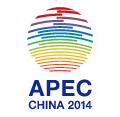Peter A. Petri (PIIE), Michael G. Plummer (Johns Hopkins University and East-West Center), Shujiro Urata (Waseda University) and Fan Zhai (Former Managing Director, China Investment Corporation)
The withdrawal of the United States from the Trans-Pacific Partnership (TPP) in early 2017 led the remaining 11 countries in that trade and investment agreement to explore alternative ways to sustain economic integration in the Asia-Pacific region. This Working Paper shows that, without the United States, these 11 countries can achieve significant gains from high-quality, TPP-like agreements among themselves, and from what might have to be a less rigorous but wider agreement in a separate, 16-member Asian trade negotiation, the Regional Comprehensive Economic Partnership (RCEP). Either of these multilateral options would yield benefits greater than those that would flow from bilateral agreements between individual countries and the United States alone, and gains from such accords could grow over time. For example, expanding the TPP without the United States to five other Asia-Pacific economies, all of which have expressed interest in the TPP in the past, would yield global income gains that rival those expected from the original TPP that included the United States, and the gains are even larger for some members. The United States, meanwhile, would suffer losses from such arrangements in two ways: first, because it would forego the benefits that would otherwise accrue from the relatively large TPP agreement, and second, because the new Asia-Pacific agreements would reduce US exports to the region as countries shift their trade to competitors of the United States. In the longer run, a new Asia-Pacific agreement or agreements would keep trade liberalization on the global agenda and likely attract further interest from large partners, including Europe. Eventually, the United States might observe that it is losing out and change its mind about joining these larger trade blocs. [Abstract from Peterson Institute for International Economics]
Download full report from PIIE website.
Read more
Source: PECC News feed










